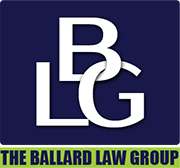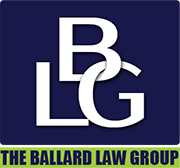When people file a Chapter 13 bankruptcy petition in Georgia, they must also submit a repayment plan no later than 15 days after filing that petition. Repayment plans must be approved by the courts and show how you plan to pay back your creditors. Fixed amounts must be paid to the bankruptcy trustee– typically either every month or biweekly – at which time the trustee distributes these funds to creditors according to terms set forth in the repayment plan. But which debts must be paid first? Do they all have to be paid in full? The different types of creditor claims and their implications are explained below.
Types of Creditor Claims and Debtor Payment under Repayment Plans
Creditors can make different claims against a debtor which a Chapter 13 repayment plan addresses. These claims give different value to debts and their treatment:
- Priority Claims;
- Secured Claims; and
- Unsecured Claims.
Priority Claims
Bankruptcy law gives certain types of debt preferential status, and unless the creditor agrees to a different treatment of their claim for repayment, means the debtor must pay those claims in full. Typically costs associated with a bankruptcy proceeding, tax debts, and domestic support obligations.
Domestic support obligations also offer debtors the option to contribute all their disposable income toward their debt for a five-year period to avoid having to satisfy the debt in full in the same way they would unsecured claims.
Secured Claims
A debtor’s repayment plan must provide that they will pay at least the value of any collateral they possess that holds a secured claim if they wish to retain the collateral used to secure it. However, if for instance, a debtor took out a car loan and the debt underlying the secured claim was used to purchase the collateral itself, any debt incurred within a certain period prior to filing bankruptcy must be paid in full along with the value of the collateral.
Some payments to secured creditors may be made according to the original loan’s repayment schedule and take longer than the repayment plan, but this is allowed if any arrears are repaid during the repayment plan. This is common with home mortgages.
Unsecured Claims
Any debts that are not secured by collateral or made a priority by law do not need to be paid in full – but there is a catch. The debtor must contribute all projected disposable income over a time period, disposable income being all income outside of received child support and subtracted by amounts reasonably necessary for a debtor and their dependents’ support and maintenance and less charitable contributions of up to 15% of their gross income.
If the debtor’s family income is under the median income for a family their size in Georgia, their commitment period to contributing disposable income is three years. If it is greater than an average Georgia family their size, it is a five-year period.
Get Help with Your Georgia Chapter 13 Bankruptcy Repayment Plan Today
If you are filing bankruptcy, it is common to have questions about how to create a repayment plan that a court will accept – let alone what it means for you. Contact our experienced Georgia bankruptcy attorneys at The Ballard Law Group for answers. We can use our experience to help you plan a successful repayment plan and make your bankruptcy a success. We offer a free bankruptcy consultation to evaluate your case and help make the bankruptcy process as easy and effective as possible. Call us at (404) 800-9939!


